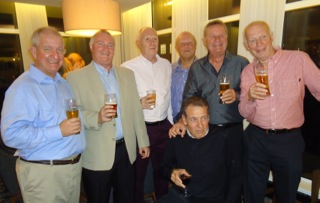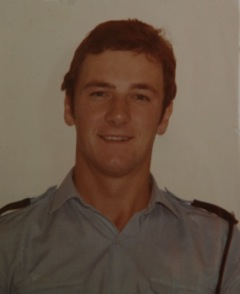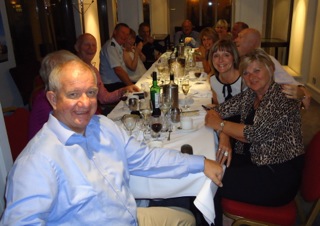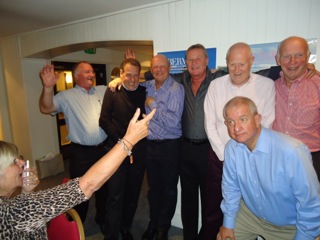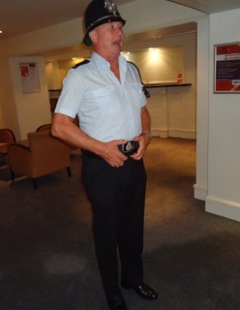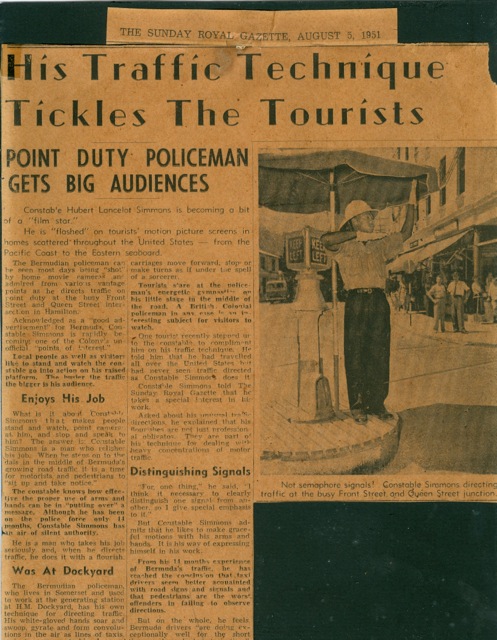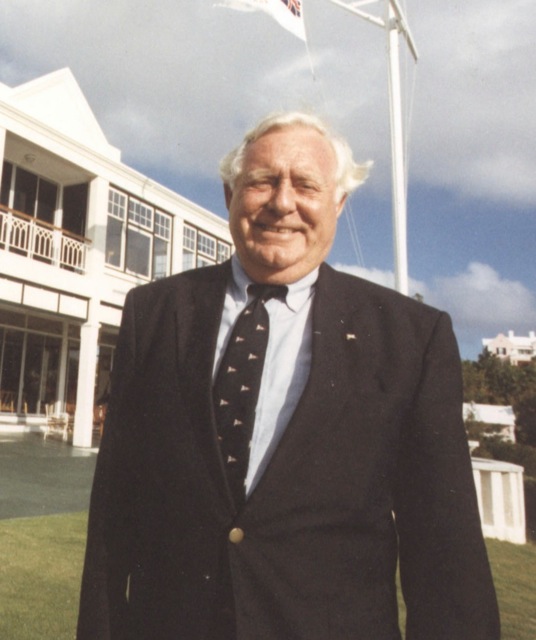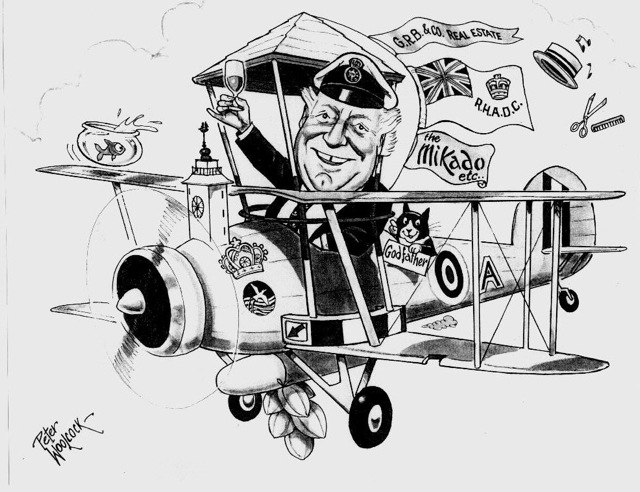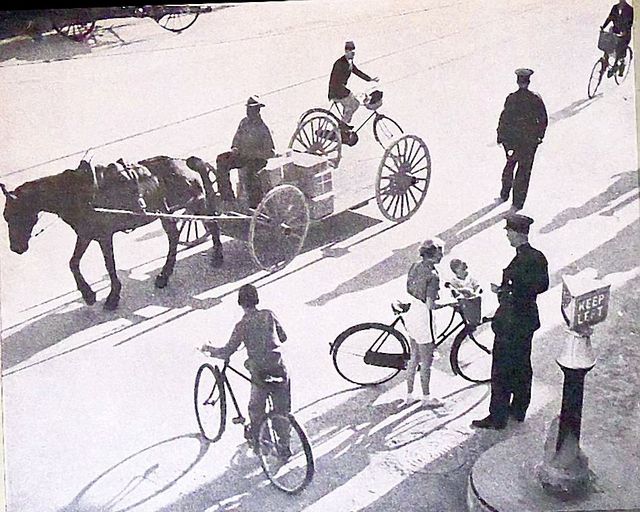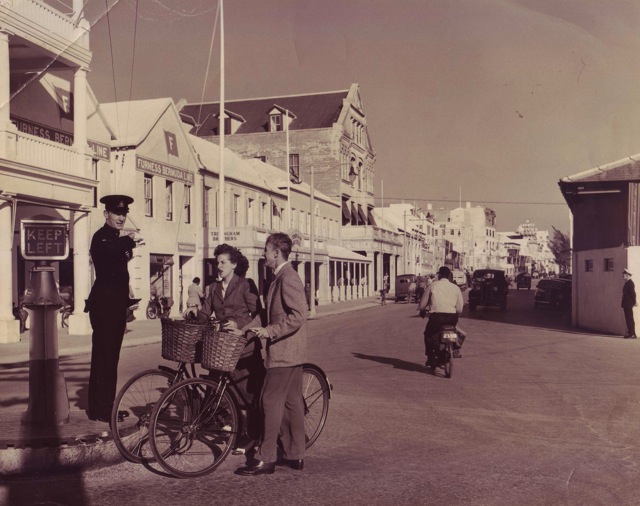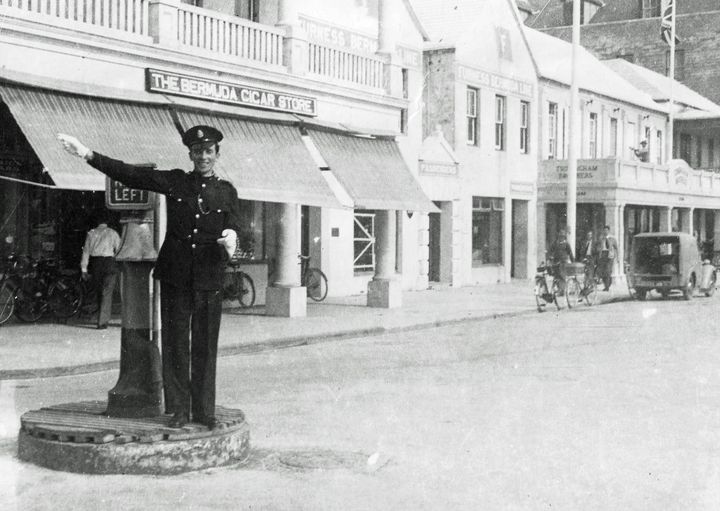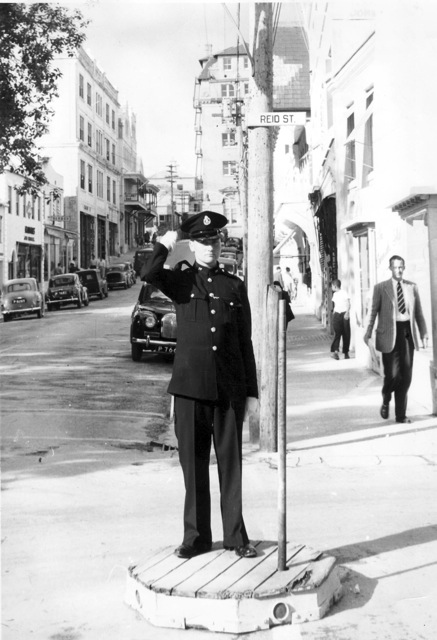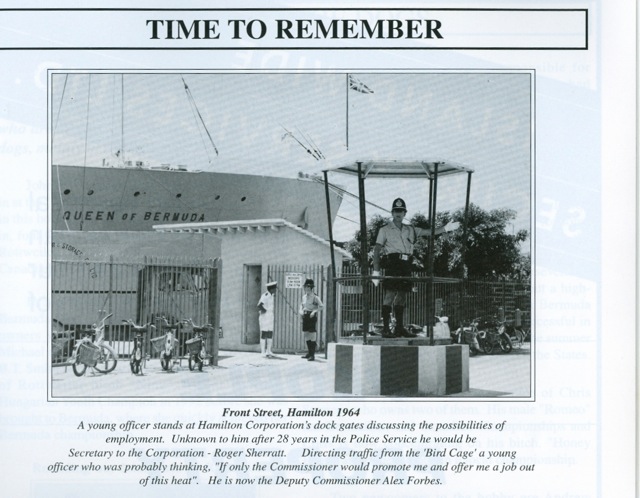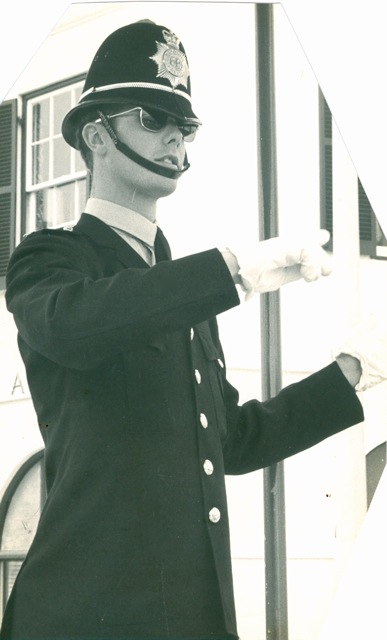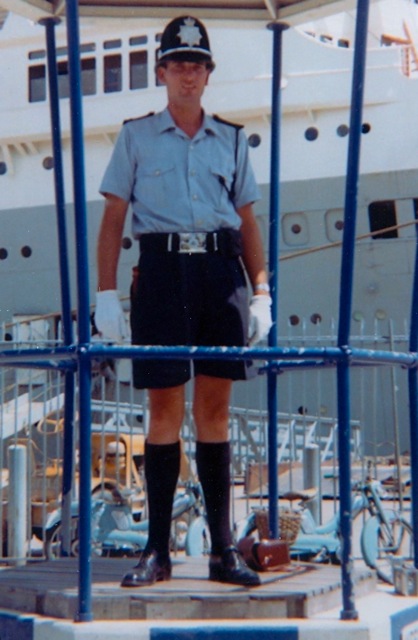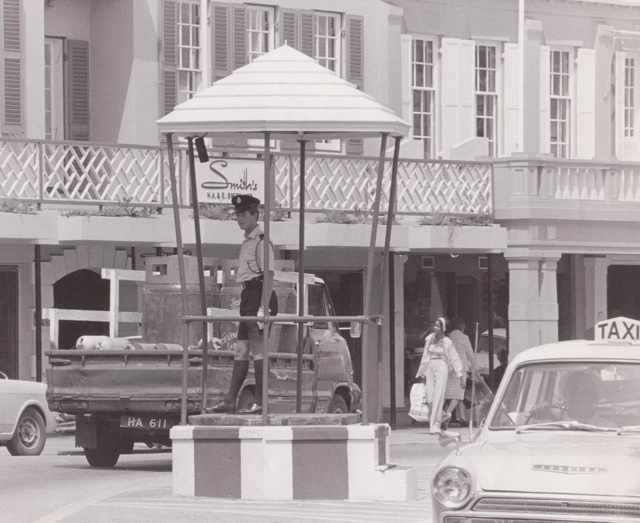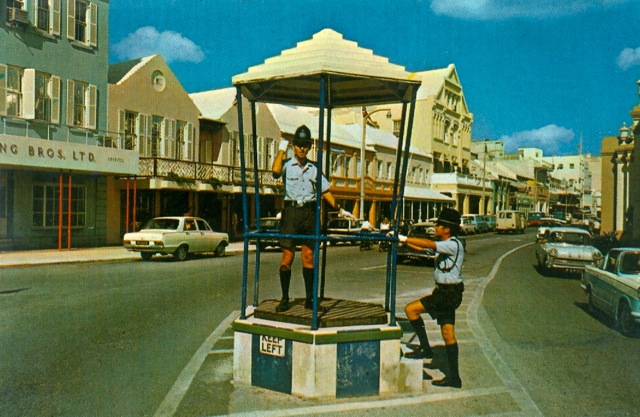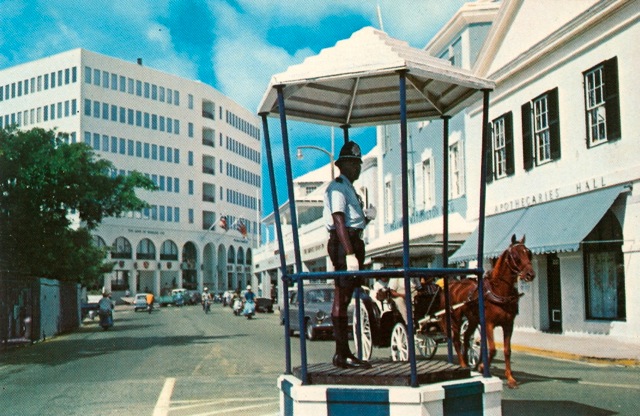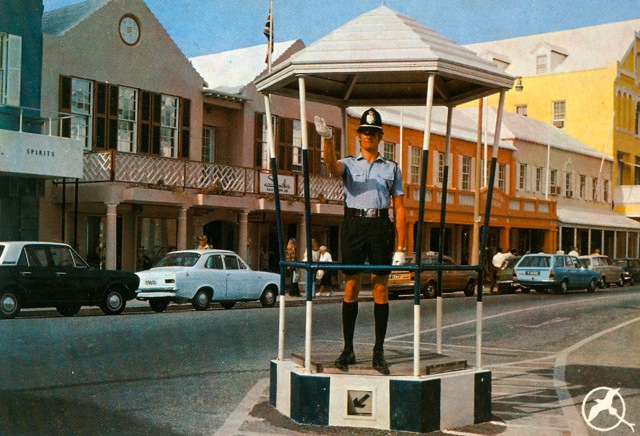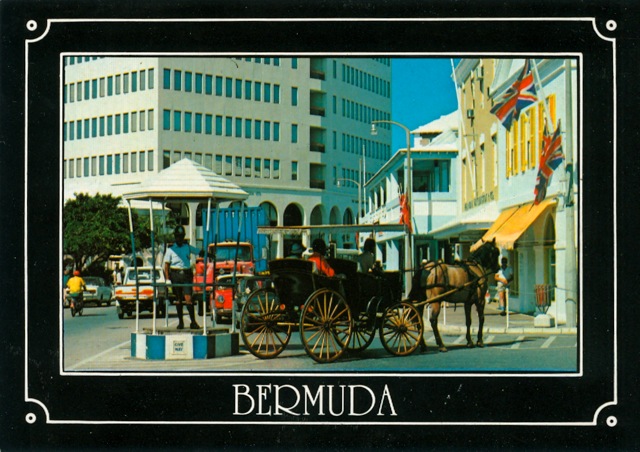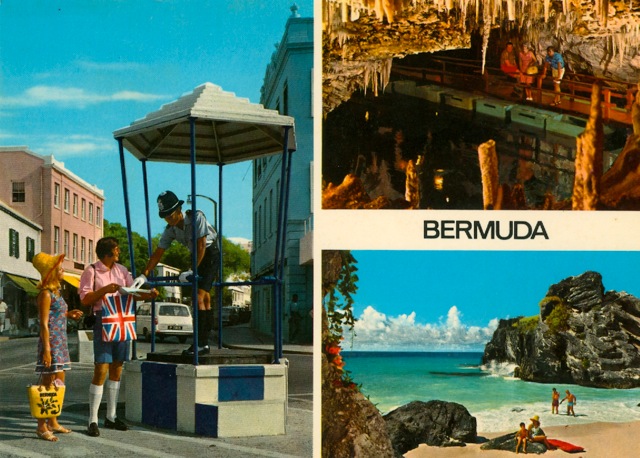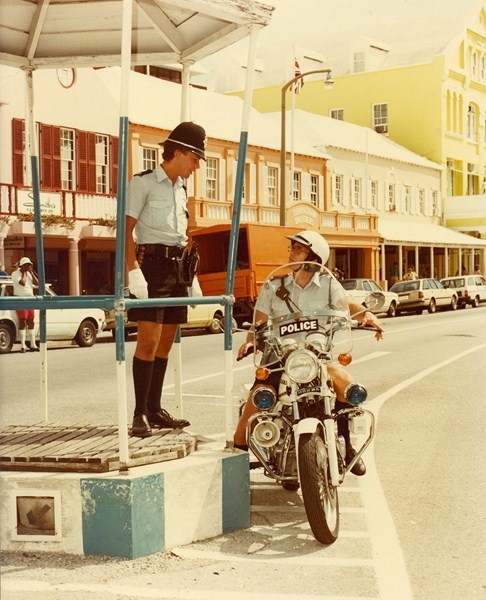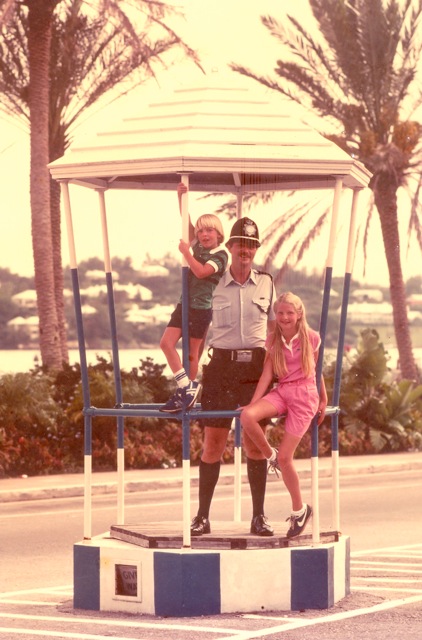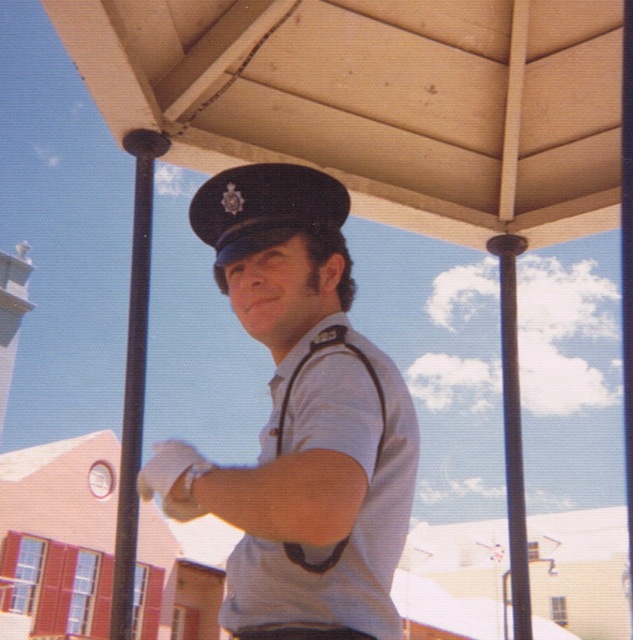Expo members meet with LEAP founder
ExPo members meet with founder of LEAP
“The times they are a-changing!” (Bob Dylan 1964)
Who would ever imagine the day when a group of retired Bermuda police officers, including two former heads of our Narcotics Dapartment, would sit down to hear a presentation by a retired American Police Lieutenant and former undercover Narcotics detective suggesting that “All drugs should be Legalized”?
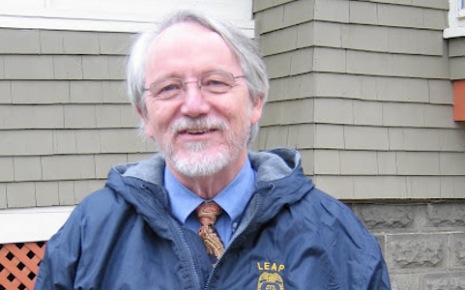
This was the scenario in Hamilton last Sunday 23rd February within hours of former Police Lieutenant Jack Cole, a founder member and Board Chair of LEAP (Law Enforcement Against Prohibition) arriving in Bermuda to give a series of talks on this very subject.
Mr. Cole was keen to meet with retired Bermuda police officers who had first-hand knowledge and experience of fighting the so-called “War on Drugs” and this was to be his first of many presentations in a busy week during which he met with numerous organizations including the Bermuda Bar Association, Hamilton and Sandys Rotary, the Chamber of Commerce, the Department of National Drug Control, a Town Hall Meeting organized by the Cannabis Reform Coalition, Citizens Uprooting Racism in Bermuda, senior Government officials, and appearances on several radio talk shows.
In attendance at our meeting with Mr. Cole were former Assistant Commissioner Wayne Perinchief, who also held the position of Minister of National Security in the PLP Government and was appointed as Bermuda’s first Drug Czar; retired Superintendents Larry Smith and George Rose, both of whom headed Narcotics Department; former Sergeant Paul Field who also worked in Narcotics in the “early days”, along with John Dale and myself who both headed the Police Community Media Relations Branch. CLICK HERE to view Mr. Coles presentation on Exit Strategies for the Drug War
I can report that we had a very lively and frank discussion about LEAPs aim of eliminating the policy of drug prohibition and replacing it with a policy of drug control and regulation (much as we have for tobacco and alcohol). Mr Cole stressed that LEAP does not in any way promote the use of drugs. Far from it. Its members are deeply concerned about the destructive impact of drugs together with violent drug gangs proliferating around the world, but it recognizes that the so-called ”War on Drugs” is, and will continue to be, an abject failure. LEAP believes that adult drug abuse needs to be treated as a health problem – not a criminal law enforcement problem.
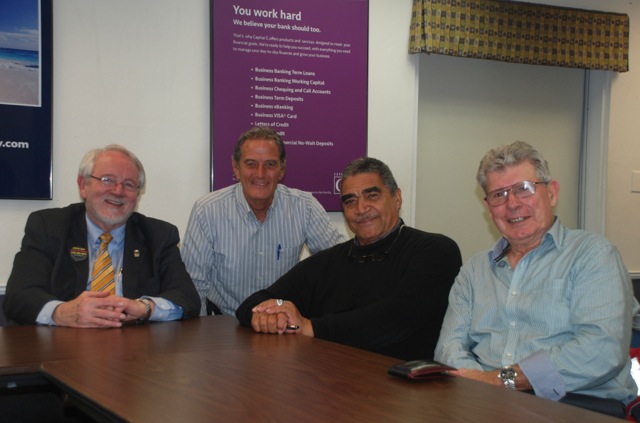
Jack Cole meets with Expo members George Rose, Wayne Perinchief and Paul Field
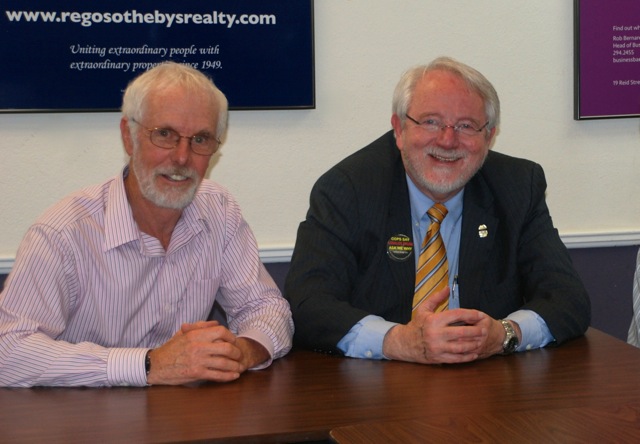
Roger Sherratt and Jack Cole
Speaking with Mr Cole at the end of his week here he estimated that approximately 80% of all those he met with in Bermuda were in agreement with LEAP’s position on removing the prohibition on illegal drugs. This was not unexpected because, according to Mr. Cole, LEAP speakers find that approximately 80% of their audiences agree with ending prohibition.
As an example, after hearing a presentation during a Strategic Meeting on Public Security and Drug Policies held in Brazil in September 2011, retired Chief Constable Tom Lloyd of Cambridgeshire, England, UK, asked for a show of hands within the 50 ranking police officers representing 17 countries that attended the conference to see how many agreed with Mr. Cole that we should end the war on drugs by legalizing and regulating all drugs. Eighty-five percent agreed and only 5% wanted to continue the drug war, with 10 percent abstaining. The countries represented were Argentina, Australia, Brazil, Chile, Colombia, El Salvador, Germany, Guatemala, Mexico, the Netherlands, Nicaragua, Peru, Portugal, Switzerland, the United Kingdom, the United States, and Uruguay.
As a direct result of Jack Cole’s visit it is anticipated that a Bermuda Chapter of LEAP will soon be formed here. LEAP’S membership is made up of former and present police officers, judges, prosecutors, prison wardens, FBI and DEA agents, and now numbers over 100,000 supporters in 190 countries.
You may find the following information about LEAP to be useful:-
Vision Statement: LEAP envisions a world in which drug policies work for the benefit of society and keep our communities safer. A system of legalization and regulation will end the violence, better protect human rights, safeguard our children, reduce crime and disease, treat drug abusers as patients, reduce addiction, use tax dollars more efficiently, and restore the public’s respect and trust in law enforcement.
Mission Statement : The mission of LEAP is to reduce the multitude of harmful consequences resulting from fighting the war on drugs and to lessen the incidence of death, disease, crime, and addiction by ending drug prohibition.
LEAP’S Statement of Principles
1. LEAP does not promote the use of drugs and is deeply concerned about the extent of drug abuse worldwide. LEAP is also deeply concerned with the destructive impact of violent drug gangs and cartels everywhere in the world. Neither problem is remedied by the current policy of drug prohibition. Indeed, drug abuse and gang violence flourish in a drug prohibition environment, just as they did during alcohol prohibition.
2. LEAP advocates the elimination of the policy of drug prohibition and the inauguration of a replacement policy of drug control and regulation, including regulations imposing appropriate age restrictions on drug sales and use, just as there are age restrictions on marriage, signing contracts, alcohol, tobacco, operating vehicles and heavy equipment, voting and so on.
3. LEAP believes that adult drug abuse is a health problem and not a law-enforcement matter, provided that the abuse does not harm other people or the property of others.
4. LEAP believes that adult drug use, however dangerous, is a matter of personal freedom as long as it does not impinge on the freedom or safety of others.
5. LEAP speakers come from a wide divergence of political thought and social conscience and recognize that in a post-prohibition world it will take time to strike a proper regulatory balance, blending private, public and medical models to best control and regulate “illicit drugs.” LEAP speakers are free to advocate their view of better post-prohibition stratagems without towing a LEAP “party line.”
6. LEAP recognizes that even in a post-prohibition world, still, drugs can be dangerous and potentially addictive, requiring appropriate regulation and control. Even in a free-market economy, reasonable regulation for the purposes of public health is a long-standing, accepted principle. Such regulation must not allow casual, unfettered or indiscriminate drug sales.
7. LEAP believes that government has a public health obligation to accurately ascertain the risks associated with the use of each “illicit drug” and a duty to clearly communicate that information to the public by means of labeling and warnings similar to what is done regarding food, tobacco, alcohol and medicine.
8. LEAP believes that an inordinate number of people have been misguidedly incarcerated for violation of zero-tolerant, nonviolent, consensual “drug crimes.” The end of drug prohibition will allow those persons to be promptly released, to have their record of conviction expunged, and their civil rights completely restored. However, the repeal of drug prohibition does not imply the exoneration from charges for connected offenses, such as violent crimes, gun crimes, theft, or driving under the influence of drugs. Furthermore, LEAP believes that people using alcohol or other drugs must be held accountable for any misbehavior, which harms other people or property of others, while under the influence of mind-altering substances.
9. LEAP believes that persons suffering from drug abuse afflictions and addiction, who want help, should be provided with a variety of help, including drug treatment and drug maintenance, even for uninsured addicts. LEAP believes that with an end to drug prohibition and regained control of criminal justice expenditures, a fraction of those savings would be more than sufficient to pay for expanded addiction services.
10. LEAP recognizes that different “illicit drugs” pose differing risks of harm. As such, in a post-prohibition world, LEAP recognizes that an appropriate set of regulations and control for one substance may not be a suitable or sufficient regulation and control for another substance. LEAP believes that the nation states of the world and various states within the United States must be given the regulatory latitude to try new models that wisely balance the notions of freedom over one’s own body with the need for common sense regulation of drugs to reduce death, disease, addiction and harm.
For more information about LEAP we recommend that you check out their website at http://www.leap.cc
Please note that although we already have several former senior Bermuda police officers who have expressed specific interest in helping to organize a Chapter of LEAP in Bermuda, this is NOT an official policy of the Bermuda Ex-Police Officer’s Association. However, I believe that it is a matter of vital importance both in Bermuda and around the world, and I would personally encourage all of our members, both here and abroad, to familiarize yourselves with the issues regarding the need for drug reform.
Please feel free to let us have you views in the comments section below or by writing to us at info@expobermuda.com
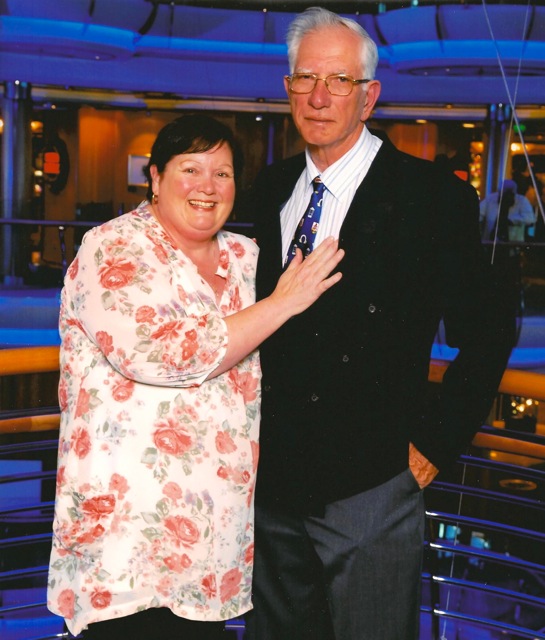
Hello Roger,
Congratulations again on doing an excellent job regarding the Ex Police web page. I was particularly interested in the LEAP article. First of all the photos made me feel a bit sad, because you guys have aged better than me. Please pass on my regards.
In short, "I am open minded but am not convinced that legalization is the answer. " I agree with most of the other principles of LEAP. I would like to qualify this by giving a bit of history that would not be known to a lot of people.
Bermuda in the 60's and 70s
In the 1960s and 70s there was a lot of debate about legalizing drugs, including in Bermuda and the USA. Some Church Leaders, and Bermudian politicians, approached health authorities, youth leaders, and unofficially 'on the ground Police Officers' about the pros and cons about legalizing drugs. I was one of those Officers who stuck their necks out, and spoke off the record. Some other Officers who I will not name without their permission gave far better feed back than I did.
In 1970 after I received the ' Young Man of the Year Award ' I was intensely questioned about drugs during an interview on the radio, part of which was also published. Obviously, Senior Officers where not happy about me expressing my concern about the impact of drugs on the community. Their attitude was that members of the Force did not have a right to speak on the subject. I got nothing but support from other Police Officers and the community as a whole. In addition to the legalization issue, treatment of users was also discussed. There was some pioneer work done in this area both locally, in the USA and Canada, which we encouraged people to consider.
I wish to stress that in no way did the listed activities compromise the way I performed my duties. In fact, continually seeing peoples' lives stuffed up made me work harder to keep drugs off the streets. Strangely, I had some type of hate/respect relationship with some of the dealers - some I had known most my life. After convicting them, I often had some interesting conversations. Most assured me they did not want drugs legalized. The common comment was, "Front Street got rich off selling liquor. Why not let Court Street become rich off drugs?" These dealers saw us helping them keep the cost of drugs high, by keeping supplies limited on the streets. This can well be used to support LEAP's argument. I felt less likely to get hurt dealing with big time dealers than dealing with the small time dealer/user who was likely to be high.
American Experiences
During the late 60's and early 70s I did a training course in the States, worked on a case regarding a drug shipment that had been intercepted in Bermuda. I also spent some time in the States with different American Police Officers I had met on the Island. The debates about legalization and treatment continually arose. At the time, I was told that President Nixon was having a number of inquiries [both official and unofficial]. One of the stories at the time was that tobacco companies had paid for an inquiry to prove that marijuana was harmless and should be legalized. The recommendations, which I never saw, were that in fact cigarettes were harmful and should be made illegal.
Actual Drug Content of Marijuana
This was an issue that continually arose during the debate about legalization. Some was so strong that one cigarette could "cook a brain". I have seen people rushed to hospital after one joint. On the other extreme there was one batch of BG [Bermuda Green] that people claimed was the best they ever smoked. "High" users were caught doing some extremely stupid things. During an operation I helped catch the person supplying [he sold to an officer]. The BG turned out to be a mixture of lawn clipping and horse manure !!!!! We still got him convicted for other offenses. The problem at the time was there was no system to tell how much drug actually was in the marijuana, unlike liquor where the alcohol can be measured.
Medical Use
From reports I have seen there is a strong case for marijuana to be used for certain illnesses, under medical supervision.
Arguments against legalization
In short when it is all said and done, marijuana is a drug, sometimes less harmful than tobacco; some times extremely harmful. If made legal it would need at least the same restrictions as cigarettes; preferably be treated as a prescribed drug. Like booze, we are not doing a good job keeping it out of the hands of children. Liquor stores and chemists are regularly robbed and broken into now. Will this increase if they became the suppliers of marijuana and other presently illegal drugs? As my friends on Court Street would say, "would this in fact help make the white business men even richer? Will we have to find other ways to make money, sex slaves maybe?"
Final Point
I believe that in the 60's and 70's politicians and community leaders as a whole did seriously consider legalization of drugs. The evidence suggested than it would cause even more harm than liquor was doing. There were a lot of new drugs such as LSD that really we did not know their long term effects. I have no doubt that despite failures, some people did give up drugs, became good citizens; and lives were saved. I am open minded, but not convinced legalization is the way to go.
Feel free to pass on this e-mail to anyone who is interested. Also if you hear that Lt. Jack Cole is visiting Western Australia, let us know. I would be very interested discussing this matter with him.
Give my regards to all.
All the best,
RAY Sousa [former DC 241]
